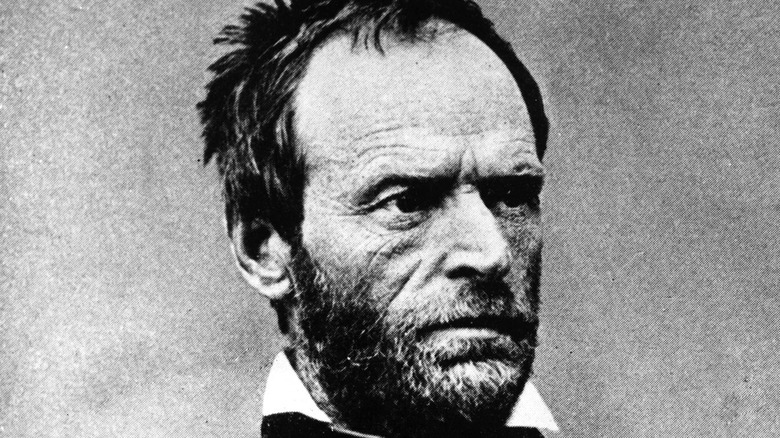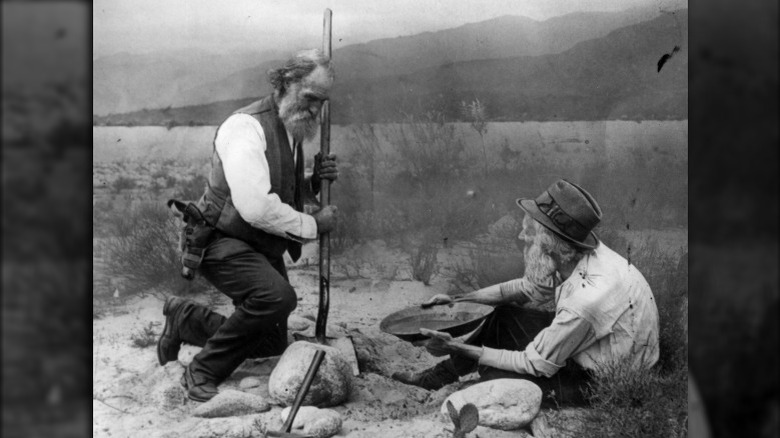How William Tecumseh Sherman Helped Ignite The California Gold Rush
William Tecumseh Sherman was a Union Army leader in the Civil War who was instrumental in the Union's victory against the Confederacy. He was born on February 8, 1820, and was from an esteemed family in Ohio. His father died when he was 9 years old, leaving him to be raised by Senator Thomas Ewing, who was a close family friend (via Biography). At 16 years old, Sherman was sent to West Point military academy where he excelled in his academics and graduated sixth in his class. Sherman's first few years in the military saw little action, and instead of serving in the frontlines, he worked as an executive officer in California. That was when he helped initiate the Gold Rush.
John Sutter was one of the early settlers in California. In 1848, he found gold on the land he owned, and he sent two of his men to Governor Richard Barnes Mason to share his discovery. Sherman was present at Governor Mason's office when the two men appeared bearing with them what they claimed was gold. According to San Francisco Museum, the governor asked Sherman what he thought about the metals, and he said that they could be tested to see if they were, indeed, gold.
William Tecumseh Sherman and the Gold Rush
The two men also brought along with them a letter from John Sutter telling the governor that he was in the process of erecting a sawmill and wanted to extend his land to the area where the gold was found. Governor Mason tasked William Tecumseh Sherman to draft a letter to Sutton where he informed him that United States and land laws did not apply to California yet, as the land hasn't been publicly surveyed (via San Francisco Museum). That letter was instrumental in starting the California Gold Rush.
As the months passed, Sherman received more and more reports of miners finding gold at Sutter's sawmill. "We heard of men earning fifty, five hundred, and thousands of dollars per day," he said. Sherman, together with Governor Mason, made it their mission to go to the Sutter's land to see what the fuss was about. Per Zocalo Public Square, Sherman spent time with the miners and reported his findings back to the government. Sherman made a small fortune by establishing a small business that sold supplies to the many gold prospectors. The Gold Rush reached its peak in 1852, and by that time, approximately $2 billion worth of gold was mined in the area, according to History.

